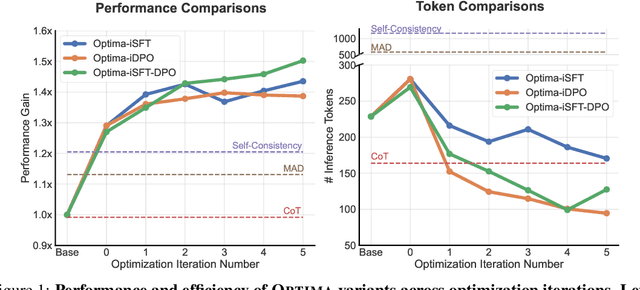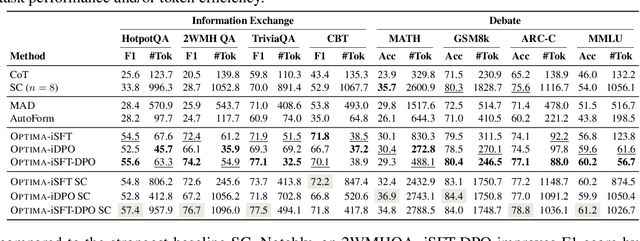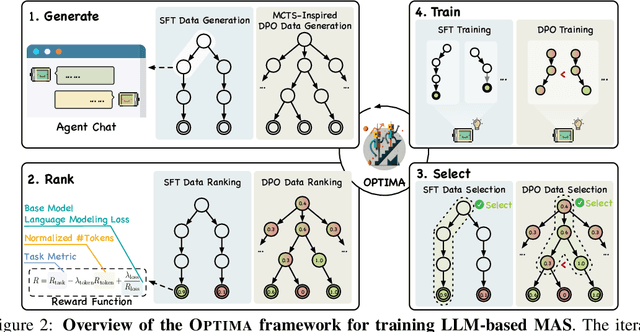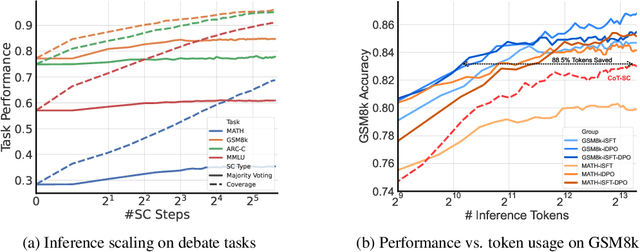Optima: Optimizing Effectiveness and Efficiency for LLM-Based Multi-Agent System
Paper and Code
Oct 10, 2024



Large Language Model (LLM) based multi-agent systems (MAS) show remarkable potential in collaborative problem-solving, yet they still face critical challenges: low communication efficiency, poor scalability, and a lack of effective parameter-updating optimization methods. We present Optima, a novel framework that addresses these issues by significantly enhancing both communication efficiency and task effectiveness in LLM-based MAS through LLM training. Optima employs an iterative generate, rank, select, and train paradigm with a reward function balancing task performance, token efficiency, and communication readability. We explore various RL algorithms, including Supervised Fine-Tuning, Direct Preference Optimization, and their hybrid approaches, providing insights into their effectiveness-efficiency trade-offs. We integrate Monte Carlo Tree Search-inspired techniques for DPO data generation, treating conversation turns as tree nodes to explore diverse interaction paths. Evaluated on common multi-agent tasks, including information-asymmetric question answering and complex reasoning, Optima shows consistent and substantial improvements over single-agent baselines and vanilla MAS based on Llama 3 8B, achieving up to 2.8x performance gain with less than 10\% tokens on tasks requiring heavy information exchange. Moreover, Optima's efficiency gains open new possibilities for leveraging inference-compute more effectively, leading to improved inference-time scaling laws. By addressing fundamental challenges in LLM-based MAS, Optima shows the potential towards scalable, efficient, and effective MAS (https://chenweize1998.github.io/optima-project-page).
 Add to Chrome
Add to Chrome Add to Firefox
Add to Firefox Add to Edge
Add to Edge